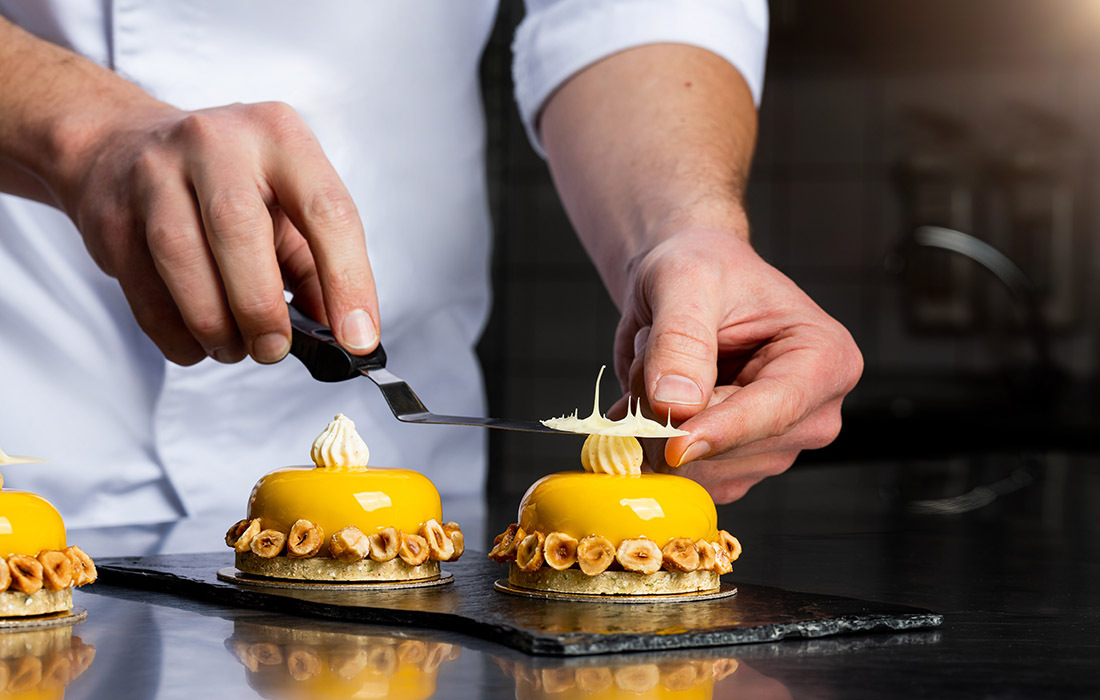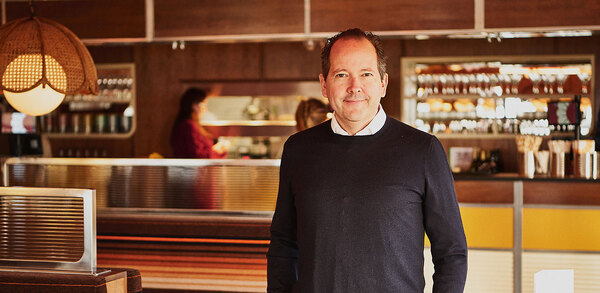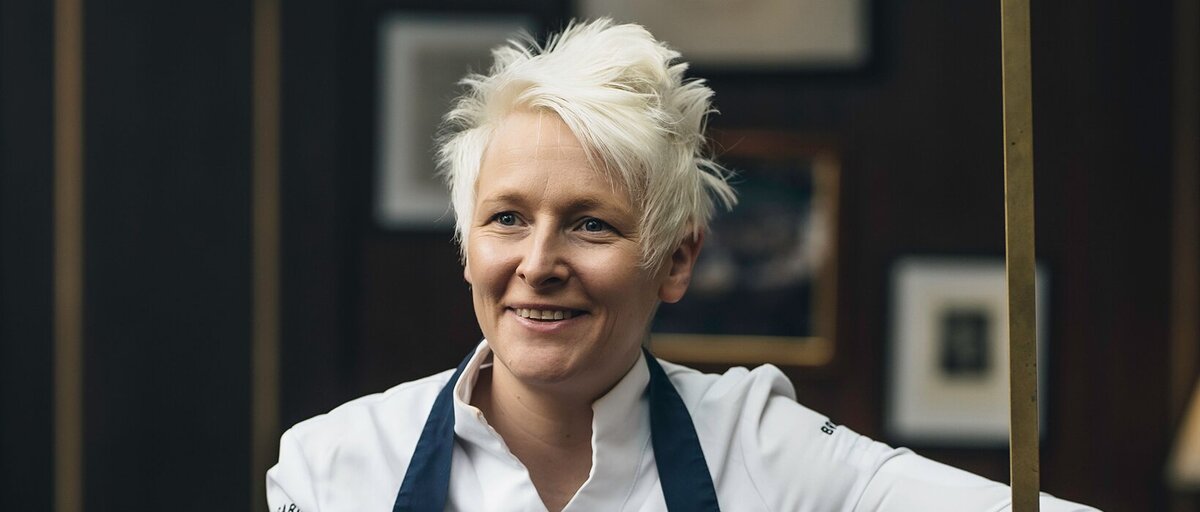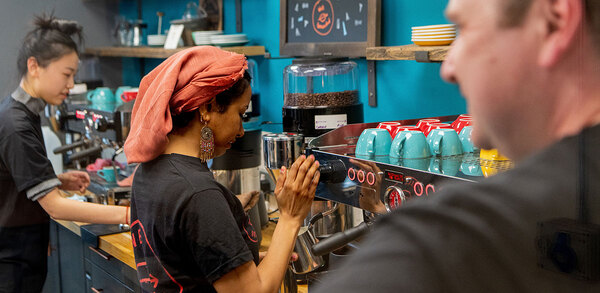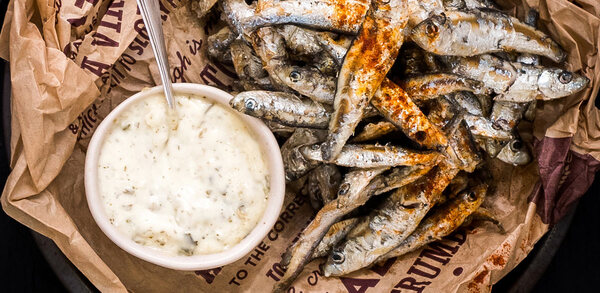8 things we learned from the Chef Summit
From turning cauliflower stalks into kimchi to opening on Mondays and Tuesdays, panellists at The Caterer’s Chef Summit, sponsored by Bidfood and Rational, discussed the secrets to success in the kitchen.
The Caterer turned to a panel of experts for the Chef Summit, where speakers revealed tips on tapping into niche markets and supporting a young team. And with Big Mamma Group recently attributing its rise in turnover to a “strong presence on social media”, it served as another reminder as to why operators should consider harnessing these platforms to attract customers and cultivate a brand.
The speakers
- Roberta Hall-McCarron, executive chef and owner, the Little Chartroom, Eleanore and Ardfern
- Henrique Sá Pessoa, executive chef, Joia and others
- Will Murray, chef and co-founder, Fallow, Fowl and Roe
- Catherine Hinchcliff, head of corporate marketing and insight, Bidfood UK
- Martin Eshelby, food innovation manager, Bidfood UK
- James Dempsey, application manager iHexagon, Rational UK
1. Be savvy about your opening hours
Edinburgh-based chef Roberta Hall-McCarron, who operates three restaurants, discussed the surprising benefits of operating sites seven days a week. “You need to employ more people and it does cost more money to have everything turned on, but suddenly we were tapping into a new market. Some of our best nights were on Monday or Tuesday, because there isn’t loads of choice for customers,” she said.
She also noticed the team were turning more tables earlier in the evening, so she shortened the available sittings and in doing so reduced staff hours. “It’s hard to keep the hours down while maintaining the level of food, but you just have to keep looking at everything and tweaking things,” she said.
2. Don’t underestimate the power of social media
Chef Will Murray confessed he was no social media guru when he started out, but Fallow in London’s St James’s has amassed more than 193,000 followers on TikTok, 285,000 followers on Instagram and 546,000 subscribers on YouTube over the past few years. With the initial support of chairman James Robson and an in-house social media manager, the team has grown its online presence to such a scale that Murray can now see a “direct correlation between sales and social media”. The restaurant group’s social media business even has a separate P&L statement.
“Every single platform has completely different implications, from age range to audience base, so you have to decide what to focus on,” Murray said. “We are focused on YouTube and Instagram, with long-form YouTube as our ultimate goal. That being said, YouTube has the most discerning and biggest BS detector!”
3. Use your own resources and videos to learn and grow
Murray also leans on YouTube in a professional capacity, for example when he is developing new menu items with his team. “Chefs often don’t want to look like they don’t know what they are doing, but I don’t really care. I’m happy for people to come on that journey with me, which works really well on YouTube,” he said.
And whenever there is a new recipe, other chefs can rely on those videos as they would a live, one-on-one tutorial. “It’s a digital archive for us to manage and train our teams properly,” he added. The team even has a series of videos entitled ‘How To Open A Restaurant’, which details the launch of Roe, his biggest site to date.
4. Tap into consumer trends
In an extensive survey conducted in partnership with CGA by NielsenIQ, food and beverage wholesaler Bidfood revealed consumers in the UK were seeking Swiss, Argentinian, Greek, Turkish, Portuguese, southern US, Welsh and Scottish cuisines. This assortment includes the likes of Creole-Cajun soul food, Turkish pide pizza and Welsh rarebit. Bidfood also identified an uptick in buns and bowls, gut-friendly food and chocolate-infused drinks and desserts.
5. Be aware of what you are bringing to your market
Portuguese chef Henrique Sá Pessoa, who recently opened his first London restaurant in the form of Joia at Art’otel London Battersea Power Station, reminded chefs to adapt their offering to consumer demands, which will vary between sites.
“You should always look for what’s going to work in the market. I want to impose my cooking, but at the same time, I want the business to work,” he explained. “What I’ve seen in London is the prices of the products have gone up, so guests are being more careful about how they spend their money. People are going out for dinners or special occasions as opposed to a standard Tuesday, Wednesday or Thursday.”
Out of the 11 restaurants he operates across Lisbon, Miami, Amsterdam, London and Macau, only one of them – the two-Michelin-starred Alma in Portugal – is classified as a fine dining restaurant. “The others are a lot more casual. It’s unfair to say fine dining is dying because people still look for those experiences, but I don’t think every single chef should be aiming for a fine dining restaurant,” he added.
6. Be prepared to be a leader
Sá Pessoa talked openly about the challenges of operating an international portfolio of restaurants: “At some point when you become a chef, you face a cross roads where you decide if you want to be a chef who is always in the restaurant at every single service or you become a more global chef who is not always in the restaurant any more but still has a seal of approval in terms of the standard.”
Determined to share his passion for his native cuisine overseas, he made the decision to broaden his footprint. In doing so, he has learned to trust those chefs who he has worked with for several years to run his other sites day-to-day. “Nowadays, every chef will agree we are almost more like psychologists and motivators and coaches. Probably 70% coach and 30% chef in the kitchen,” he said.
Hall-McCarron also noticed a shift in leadership mindset when she took some time out to start a family. “I’m still trying to find the balance, but when I had my little girl, it put me in a different place and made me operate the business better. I could give that opportunity and confidence to people to let them grow,” she added.
7. Reconsider what constitutes waste
Although Fallow, Roe and Fowl are not strictly zero-waste restaurants, all three sites aim to minimise leftover produce wherever possible. The chefs work together to create innovative solutions, such as cauliflower stalks that are turned into kimchi, or corn husks that are caramelised in a pressure cooker and drizzled over a soft-serve.
“It’s not just me and Jack [Croft] doing this, it’s the junior guys who are coming up with these ideas,” Murray said. Meanwhile, Hall-McCarron has recently introduced a pig’s head dish, which is proving to be popular with diners.
8. Think carefully about your kitchen equipment
James Dempsey, application manager at iHexagon, Rational, encouraged chefs to look out for instances where they could invest in technology to improve efficiency. “In the face of rising staff wages and staff shortages, Rational is well-equipped. We have cost-saving solutions and intelligent cooking processes,” he explained. As a case in point, Sá Pessoa revealed he uses 15 Rationals across all of his restaurants and said they are crucial pieces of equipment.
From the sponsor – Rational
Rational was delighted to sponsor the Chef Summit, an event for culinary professionals. As a global leader in thermal cooking systems, it was an ideal platform to explore emerging food and drink trends and discuss how chefs can leverage social media to engage with their audiences.
James Dempsey, application manager iHexagon at Rational UK, joined the panel, sharing insights into how Rational’s intelligent cooking systems help chefs and operators improve their kitchen efficiency while maximising gross profits.
With a strong commitment to chefs, Rational’s team of over 500 master chefs worldwide ensures that their innovative cooking solutions not only meet but exceed the demands of modern kitchens. Designed to enhance flexibility, efficiency, and sustainability, our systems empower chefs to focus on what they do best: creating extraordinary culinary experiences.
From the sponsor – Bidfood
We were delighted to hear that The Caterer was running this event, an industry first for chefs, and even more excited to support it! It’s still a tough time for chefs and the hospitality industry as a whole when it comes to tempting cautious consumers to spend, and making margin from your menu, so it was a great opportunity for us to share our insights on key trends and what consumers are looking for in 2025.
It was interesting to hear the other speakers and panellists share inspiration about how they are successfully making operational changes and re-using would be wasted ingredients so creatively.
Register your place for The Caterer’s other summits, including the Social Media Summit, here



